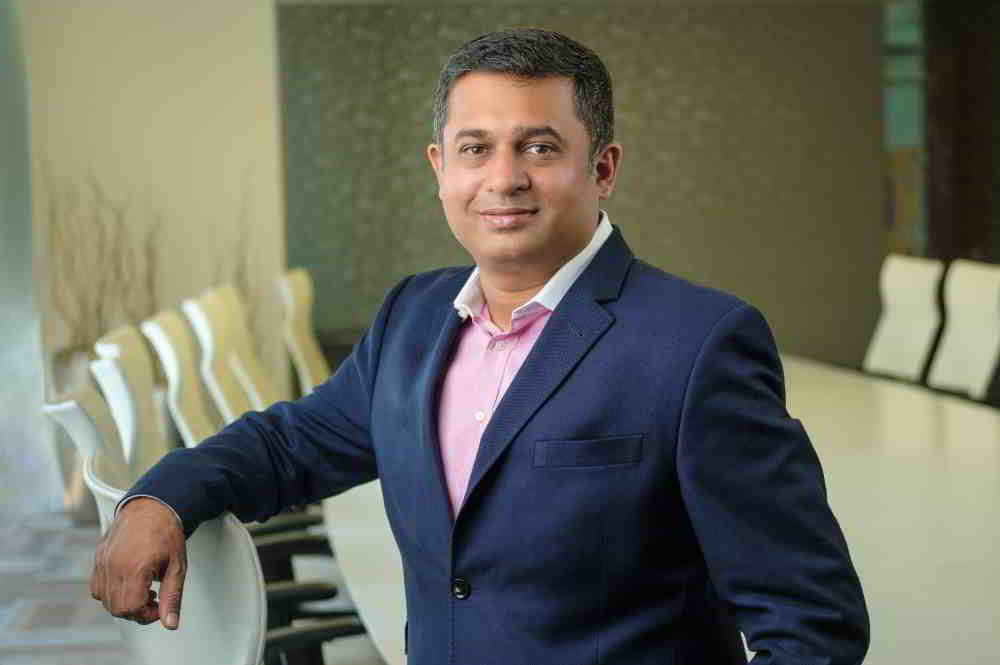In his Union Budget 2018 speech, the Finance minister said the government (of India) does not recognise cryptocurrencies as legal tender and will take all measures to eliminate the use of these crypto-assets in financing illegitimate activities or as part of the payment system.
Many believe this was a rather harsh and hurried judgement on cryptocurrencies.

KK Mookhey, Founder & CEO, Network Intelligence India Pvt. Ltd.
In a candid chat with Brian Pereira of Digital Creed, KK Mookhey, Founder & CEO, Network Intelligence India Pvt. Ltd. gives his views on the importance of cryptocurrencies to the startup economy and what the regulator should be doing. He also offers an example of how cryptocurrency has brought in unprecedented transparency.
DC: Don’t you think the statement made in the Budget on cryptocurrency was a rather harsh judgement? What is the stance the government should have taken, instead?
KK Mookhey: It was a hurried and rushed statement, and it does not seem that there was a lot of homework done when preparing this statement. (Asks a couple of questions). Is the government planning to come out with its own cryptocurrency? Is it banning Bitcoin? Is it banning all cryptocurrencies? Is this a temporary stance that the government is taking or is cryptocurrency going to be banned forever?
There is a fairly active ecosystem of startups that provide cryptocurrency related services. This puts a cloud on the cryptocurrency startups and others who work on Blockchain-based products. That statement does not specify what is allowed and not allowed (legally).
Cryptocurrencies are a major application of Blockchain, though not the only one. So, it is like saying this one application is illegal and the rest are fine.
This kind of ambiguity is bad for the startup economy.
A better idea may have been to come out with a regulatory framework around cryptocurrencies. RBI should drive a study through IDBRT or another institution. They need to study this more deeply. If you look at countries like Finland and Switzerland, which are major startup hubs, there is a massive focus on cryptocurrency.
We need to look at cryptocurrency with an open mind.
On the other hand, the point raised by the Finance Minister about exploring the usage of blockchain technology for payments is a very good initiative. It will support home-grown technologies which have already invested in the technology and will attract new investments in this technology.
DC: Can you name a good example of how the government or world organizations have used Blockchain and cryptocurrency?
KK Mookhey: The World Food Program is a good example. United Nations created a Blockchain system where a donor can see their money going right up to the beneficiary. It can be traced from a UN agency. Donors can see that money translate into food or goods that are reaching their end beneficiary. That kind of transparency has not existed so far.
Read more about it here: The UN is using ethereum’s technology to fund food for thousands of refugees
DC: Are people misusing Bitcoin to get around taxation?
KK Mookhey: There is a conspiracy theory going around. They say, post demonetisation, there was a boom in Bitcoin, and the reason for that was people were using Bitcoin to launder their money. But there is no proof of that.
DC: RBI has played a wait and watch role on cryptocurrencies for a long time, and has not taken a definite stance. Why is that so?
KK Mookhey: In my view, in the last couple of years, the RBI seems to be coming in a little late on some of the key issues. They haven’t come out with a clear statement on cryptocurrencies.
On the cloud, IDBRT came up with guidelines in 2013. But as far as I know, we haven’t heard from RBI on what should go to the cloud and what shouldn’t. I haven’t seen an official statement from RBI on this.
Everybody works on the assumed constraint that customer data cannot go outside India. But what about cloud service providers like AWS and Microsoft who have set up their clouds in India? And then you have all these Fintech startups running all over the globe, and the banks partner with them.
You might also like to read: Budget 2018 and the Opportunity for the Technology Industry
About Network Intelligence India
Network Intelligence is an ISO 27001 certified PCI DSS QSA, well-established provider of information security services and products. Incorporated in July 2001, NII is a 400 person organisation growing at a 40% to 50% YoY. They have established a reputation of providing top notch information security consultancy to industry leaders across the globe. Their client list includes companies across verticals such as banking and financial services, software services, pharmaceutical, telecom, manufacturing, e-commerce, and government departments. Their consultants possess the requisite industry certifications, but more importantly they are equipped with a wide range of skills covering different technologies and environments. Their HQ in Mumbai, they have offices in Pune, Noida, Bangalore, Chandigarh, Bangalore plus offices in New York, Dubai and Singapore. NII has a 50 seater SOC in Mumbai and also offer security trainings and certifications.









